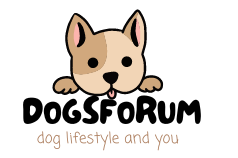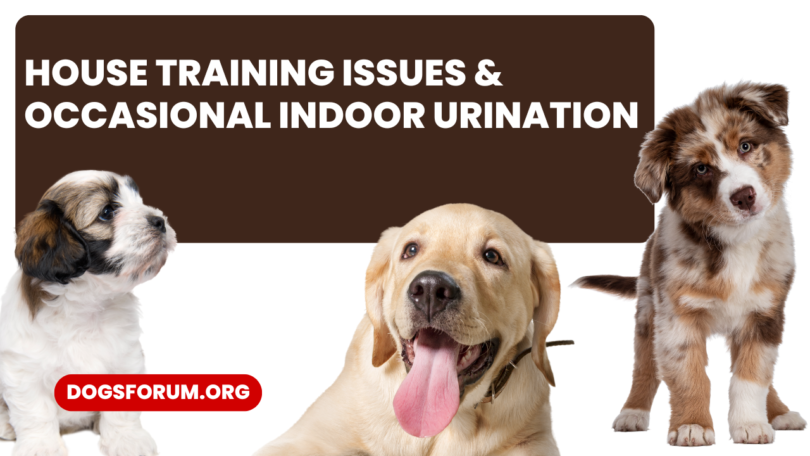And what happiness there is in having a dog! The waggles, the pure devotion, the soggy nose-nuzzles… and the occasional pool on your favourite rug. If you have ever searched the internet giggling for “how to get rid of pet stains” at 3 AM, you’re in the club! House training problems and indoor accidents are the silent consecration for dog parents everywhere. But worry not brave dog-mum, because we’re about to take you on a puppy potty training rollercoaster that will make you laugh, wince, maybe shed a tear or two.
The Comforts of Home: A Dog’s View From the Top
Picture this: You're a dog. The world is your oyster, awash with aromas, sounds and chances for mischief. But now imagine that you’re told that of all the lovely places to poop, you should go somewhere in the great outdoors – an idea that is as alien to you as calculus is to a goldfish. Why our dogs sometimes get stuck on house training!
The famed dog behaviourist Patricia McConnell said it this way: “Dogs are not fur kids. They are not little dogs in suits. They’re another kind of beast, they’ve got their own rules.” And boy do those rules sometimes run against our human natures!
The Puppy Predicament
You know if you’ve ever taken home a bouncey ball of puppy love, the first few weeks are a whirlwind of snuggles, play time and… cleaning supplies. The bladder is, oh the heart of puppies, about as potty-trained as a dripping faucet. They are eating and drinking food and water like they’re running away from a hammer, and they haven’t even learned how to “hold it”.
One frustrated puppy parent complained on a pet forum: “My dog, I swear, pees more than a fire hydrant in a heat wave! I’ve used more paper towels in the last month than I have in my entire adult life!”.
But take heart, dear reader. This too shall pass. “Patience,’ says the brilliant dog trainer Zak George, ‘is not the skill to wait, it’s the skill to wait well.’ And don’t kid yourself, yaou’ll be needing buckets of patiense as a puppy!
The Adult Dog Dilemma
So what about us who have grown-up dogs who just didn’t get the potty-training memo? Maybe you adopted a rescue with a mysterious history, or maybe your dependable dog suddenly decided your living room is now your backyard. As one dog owner sobbed: “My dog was perfectly house trained for years. Until suddenly he became his pee pad, which is my Persian rug. I’m coming to believe he’s secretly trying to redecorate!”
And don’t start questioning your dog’s interior decor dreams — sudden changes in bathroom behavior can sometimes be a warning sign of health issues. If you’re having your dog change the toilet routine, a vet visit is necessary, says the veterinarian Dr. Marty Becker. Before you buy that industrial-strength carpet cleaning machine, exclude the possibility of a medical issue.
How to Win the Bladder War: How to Win It Successfully.
Let’s discuss solutions now that we’ve all spit blood about our pain. But buckle up because this is the real house training hell!
1. The Power of Routine
Dogs, like toddlers and even some world leaders, like routine. Set a routine for feeding, going to the bathroom and playing can do wonders. The dog trainer Cesar Millan has it right: “There’s no such thing as “bad weather” to a dog. All there is is weather.” Rain or shine, get that schedule!
2. Rewarding Behavior: Chocolates, Candy and Possibly a Parade
When your dog pees outside, act like they just won the Nobel Prize for Peeing. Throw a party! Shower them with treats! Hire a skywriter to proclaim their success! That isn’t really saying much, maybe, but you get the picture. Positive reinforcement is key.
3. The Art of Supervision
When housetraining, you don’t want your dog in your sight at all times. If you cannot see them, crate train or put them in a playpen. In the words of one clever dog-owner, “I am now a dog spy. I know my dog by every move, blink and nagging look. ‘I’m the dog CIA’.
4. Clean-Up Crew Extraordinaire
When the poo gets dirty (it always will), wipe it up using an enzyme pet cleaner. ‘By-the-book cleaners won’t do. One owner found: “I once washed a pee spot with lemon soap. My dog took it as an invitation to etch his new ‘lemon tree’. Never again!”
5. Outdoors: Get It Scrumptious!
Put potty breaks on your dog’s day with potty breaks. Get a “potty time” leash, or make a place to poop in your yard. A very inventive dog owner wrote: ‘I purt in a little fire hydrant in our back yard. My dog is a different guy on the blosck now when he uses it!”
How to Fix the Small Stuff Most People Have Problems With.
Our furry friends sometimes hit us in the tail, no matter how carefully we plan. So let’s deal with some house training stumbles:
The Sneaky Pee-er
You know the type. They wait until you’re on a call or caught up in the latest episode of your favorite TV series, then KOOL! Surprise puddle by the bookshelf. For these sneaky dogs, the game’s on – and you need to be vigilant, and double your monitoring. Take the advice of Victoria Stilwell, a dog trainer, “Be active, not reactive.”
The Anxious Eliminator
There are dogs with anxiety accidents that can be very common, especially if they have had previous abuse or neglect. For these fragile ones, time and an unfazed environment are key. One loving pet parent observed: “My rescue dog had accidents that were fear-related. We saw a behaviorist and now he is not only house-trained but much more self-assured. It was like playing two games all at once!”
The Territorial Terror
Ah, marking behavior. The scourge of many a dog-owner’s life. Most commonly, it’s male dogs, but female dogs too. Then neuter or spay early, regular training and sometimes belly bands (hey, they’re really that – dog diapers! ).
‘My dog believes he’s Picasso and my house is his canvas,’ laughed one frustrated serial marker owner. Except instead of paint he pees. Not exactly the work of art I was hoping for in my living room”.
The Submissive Sprinkler
Submissive urination is sometimes shown by some dogs, especially timid or hyperactive dogs. This happens frequently in greetings or if they are in a rut. The trick is not to go over your dog, but keep things in balance. The owners of a sheepish sister said: “I started treating my dog like we were both super cool cats who did absolutely nothing to each other. Suddenly, the ‘excitement puddles' disappeared!”
The Revenge Reliever
There isn’t any rage behind dog peeing or pooping in the house, like people would have you believe. If your dog has accidents while you’re out of town, separation anxiety or lack of house training probably causes this. ‘Dogs exist in the present,’ writes animal behaviourist Dr. Patricia McConnell. They’re not the emotional machinations of vengeance”.
The Senior Citizen Slip-Ups
The elderly pets of our hearts can start having fewer and more accidents, because they have diminished bladder control or cognitive problems. One dog owner described his or her elderly dog thus: “My grandma girl started peeing after all these years of impeccable house manners. We re-scheduled, increased the frequenscy of her potty breaks, and went to our vet. That’s life with a senior pett and we love her for it.
The Great Outdoors: How To Work With It
The other side of the coin is the other way around – getting your dog to go out to pee. The wild for some dogs is a land of distractions. So preoccupied with sniffing every sprig of grass and running after every drop of leaves that they don’t even realize why they are there!
“My dog thinks our backyard is Disneyland,” one apathetic owner bemoaned. So happy to be out there that he forgets to pee. And then of course, he remembers when we go back inside!”
So to overcome this, try to teach a potty time command. An invitation to “Go potty” or “Do your business” can get your dog focused on the work. And remember, patience is key. As the dog trainer Zak George says, “Don’t rush your dog when they go potty. Allow them time to sniff and sniff around. This is their chance to “check their pee-mail” and listen in on the gossip of the neighborhood!”
The Impact of Exercise on House Training.
Don’t take a good walk or play session lightly when it comes to keeping your dog’s internal clock ticking over. And you know what they say, “A weary dog is a tired dog.” And regular exercise will improve overall behavior and prevent anxiety which can lead to house soiling.
One frantic dog owner told me: “I started running with my dog every morning. I lost 10 pounds, and not only did it help with house training, but it made me weight-watch! All for the good… except the 5am wake-up calls”.
The Psychological Tick-Tock of House Training.
But… let’s be real for a minute. Dog house training is a rollercoaster ride. When your dog goes to the bathroom at last, there will be elation, when you are Olympic gold-medal winning. There will also be times of gloom when you get wet in a warm pool in your bare feet at 2am.
A dog walker, candidly told me: “I’ve laughed, I’ve cried, I’ve thought about moving to a house that’s 100% tile. But finally when my dog got it and proudly peed out… yeah, all the work was worth it”.
Reminder: Don’t get angry. There’s a good reason you’re afraid you’re screwed. But there aren’t bad dogs, says the great dog whisperer Cesar Millan, only ignorant owners. So hold your nose up, brush your teeth, and just keep running.
The Surprising Advantages of House Training
You wouldn’t believe it but the house training exercise has a few surprising upsides. It was said by most dog owners to help them bond with their dog and give them a lesson in patience and persistence. As one dog-parent with a soul commented: House training my dog made me more patient and more loving than any book of self-help could ever have made me. Who knew it could be a spiritual activity to get up pee?
Plus, when you are housetrained, you may learn more about your dog’s body language and behavior. You’ll learn to interpret those tiny signals that your dog wants to leave the house and that is a huge asset for all things else with a dog. And when we’re on that dirty, exhausting, yet fun house-training journey, take heed of the wisdom of the late Roger Caras: “Dogs are not our whole life, but they make our lives whole.” So the next time you wipe out a hard-to-remove stain on your carpet, turn over into those puppy eyes and remember why you came here in the first place.




Leave a Comment